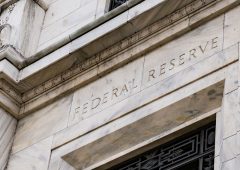China Prepares $1.4 Trillion Stimulus Package to Revitalize Struggling Economy
04.11.2024 18:30 1 min. read Alexander Zdravkov
China is reportedly exploring a significant economic stimulus initiative aimed at rejuvenating its struggling economy.
The nation, recognized as the world’s second-largest economy, may soon approve a fiscal boost worth 10 trillion yuan, equivalent to about $1.4 trillion, with announcements potentially coming next week, as per reports from Reuters.
This initiative is set to involve raising new debt through the issuance of special sovereign bonds and local government securities in the upcoming years. Insiders suggest that the plan includes raising around 6 trillion yuan (approximately $840 billion) over the next three years to assist local governments in addressing hidden debts on their balance sheets. Furthermore, an additional 4 trillion yuan ($560 billion) is earmarked to revitalize the struggling property sector.
The urgency for such a stimulus arises following a wave of bank closures in June, where several financial institutions in China were acquired by larger counterparts amid a significant decline in the real estate market. This downturn has been fueled by inadequate risk management and escalating local government debts.
Next week, the Standing Committee of the National People’s Congress, which serves as China’s national legislature, is scheduled to meet to deliberate on the proposed stimulus measures. This timing coincides with the U.S. presidential election, adding an interesting dynamic to the situation.
-
1
Robert Kiyosaki Predicts When The Price of Silver Will Explode
28.06.2025 16:30 2 min. read -
2
Trump Targets Powell as Fed Holds Rates: Who Could Replace Him?
27.06.2025 9:00 2 min. read -
3
U.S. PCE Inflation Rises for First Time Since February, Fed Rate Cut Likely Delayed
27.06.2025 18:00 1 min. read -
4
Key U.S. Economic Events to Watch Next Week
06.07.2025 19:00 2 min. read -
5
Gold Beats U.S. Stock Market Over 25 Years, Even With Dividends Included
13.07.2025 15:00 1 min. read
US Inflation Heats Up in June, Fueling Uncertainty Around Fed Cuts
U.S. inflation accelerated in June, dealing a potential setback to expectations of imminent Federal Reserve rate cuts.
Gold Beats U.S. Stock Market Over 25 Years, Even With Dividends Included
In a surprising long-term performance shift, gold has officially outpaced the U.S. stock market over the past 25 years—dividends included.
U.S. Announces Sweeping New Tariffs on 30+ Countries
The United States has rolled out a broad set of new import tariffs this week, targeting over 30 countries and economic blocs in a sharp escalation of its trade protection measures, according to list from WatcherGuru.
Key U.S. Economic Events to Watch Next Week
After a week of record-setting gains in U.S. markets, investors are shifting focus to a quieter yet crucial stretch of macroeconomic developments.
-
1
Robert Kiyosaki Predicts When The Price of Silver Will Explode
28.06.2025 16:30 2 min. read -
2
Trump Targets Powell as Fed Holds Rates: Who Could Replace Him?
27.06.2025 9:00 2 min. read -
3
U.S. PCE Inflation Rises for First Time Since February, Fed Rate Cut Likely Delayed
27.06.2025 18:00 1 min. read -
4
Key U.S. Economic Events to Watch Next Week
06.07.2025 19:00 2 min. read -
5
Gold Beats U.S. Stock Market Over 25 Years, Even With Dividends Included
13.07.2025 15:00 1 min. read


